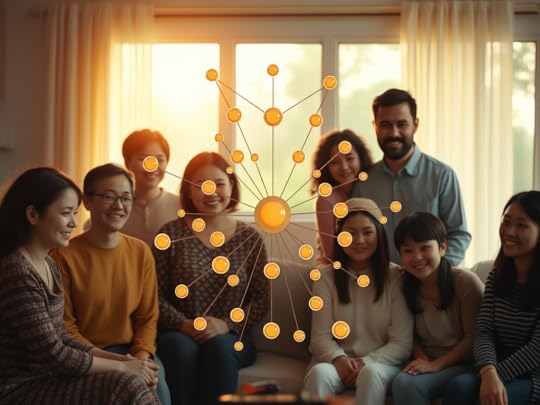Ancestry And The Power of Family Connections
I’ve just returned from a visit to my home country, South Africa, where I spent precious time with my family. In the early 1970s, my grandparents expressed a simple but profound wish: that all siblings and grandchildren gather in one place at least once a year. Remarkably, that tradition has held steady across five decades—interrupted only briefly during the COVID-19 lockdown.
In Africa, as in many traditional cultures, honoring ancestral lineage is a living practice woven into the fabric of family life.
This visit reminded me how deeply our sense of belonging is shaped by the stories, sacrifices, and silent loyalties held within our ancestral line. Knowing where we come from brings coherence to our life story. It roots us not only in a biological lineage but in a web of relationships that existed long before we were born. We carry within us more than DNA. We inherit emotional imprints, unfinished business, unspoken family secrets, but also the resilience, courage, and wisdom of those who walked before us.

Strong scientific research suggests that emotional trauma can leave detectable “marks” on our DNA via epigenetic mechanisms. One of the most well-known studies conducted in this field is by Rachel Yehuda, who analysed DNA from Holocaust victims and their children and grandchildren.
Another powerful therapeutic method in understanding inheritance from past generations is Family Constellations, developed by Bert Hellinger. Family Constellations in a therapeutic setting reveal that each one of us is part of a larger “family soul,” where the fates of earlier generations continue to echo through the lives of the living. Unresolved trauma, exclusion, or injustice in previous generations often resurfaces, seeking recognition. Not out of punishment, but out of love—an unconscious loyalty to those who were forgotten, silenced, or burdened.
Acknowledging the Past
Honouring lineage, therefore, is not about idealizing the past. It is about acknowledging it truthfully. When we make space for the full story—including the painful chapters—we interrupt patterns that no longer serve us. Family Constellations teaches that healing begins when everyone in the family system is given a rightful place, when nothing is denied, and when love can flow freely again.
My own family history bears the marks of migration, political upheaval, cultural transformation, and questions of faith stretching across continents and centuries. There are chapters full of courage and hope, and others marked by sorrow, loss, and difficult choices. These stories live in me. They shape my worldview, my fears, my strengths, and even the questions I wrestle with spiritually.
Understanding our lineage reveals patterns that help us connect with purpose, destiny, and meaning. It doesn’t require us to condone the failures or blind spots of previous generations, but to see them within the consciousness of their time. Every generation faces its own challenges and limitations. By acknowledging this, we free ourselves from repeating what no longer belongs to us and reclaim the gifts that do.
In a world where identity feels increasingly fragmented and dislocated, returning to our ancestral roots offers rootedness and sanctuary. A reminder that we are part of a much larger story—one that began long before us and will continue to echo long after we have gone.
Reino Gevers – Host of the LivingToBe podcast
P.S.: If you enjoyed this article, you might be interested in my latest book, Sages, Saints, and Sinners. Get it today on Amazon, Barnes & Noble, and wherever good books are sold.
WordPressFacebookInstagramBlueskyAmazon


